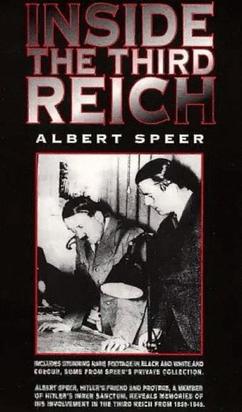| Inside the Third Reich | |
|---|---|
 | |
| Based on | Inside the Third Reich by Albert Speer |
| Written by | E. Jack Neuman |
| Directed by | Marvin J. Chomsky |
| Starring | Rutger Hauer Derek Jacobi Blythe Danner John Gielgud Ian Holm Elke Sommer Trevor Howard Robert Vaughn Renée Soutendijk |
| Theme music composer | Fred Karlin |
| Country of origin | United States |
| Original language | English |
| Production | |
| Producer | E. Jack Neuman |
| Cinematography | Tony Imi |
| Editors | Richard Belding Les Green James T. Heckert |
| Running time | 250 minutes |
| Production company | ABC Circle Films |
| Original release | |
| Network | ABC |
| Release | May 9, 1982 |
Inside the Third Reich is a 1982 television film based on the book Inside the Third Reich by Albert Speer directed by Marvin J. Chomsky. [1] It was originally broadcast on network television by the American Broadcasting Company (ABC).
Contents
Speer was portrayed in the movie by Rutger Hauer, Joseph Goebbels by Ian Holm, Randy Quaid as Putzi Hanfstaengel, and Adolf Hitler by Derek Jacobi, a role for which he was nominated for an Emmy. The miniseries won two Emmy Awards for Outstanding Film Sound Editing and Outstanding Directing in a Limited Series or a Special; DGA also outstanding directorial achievement in dramatic specials.